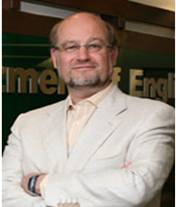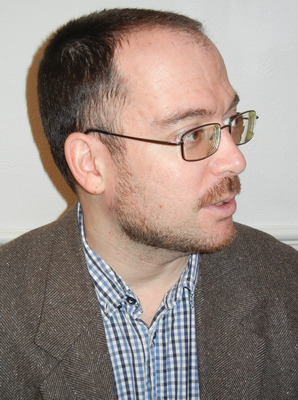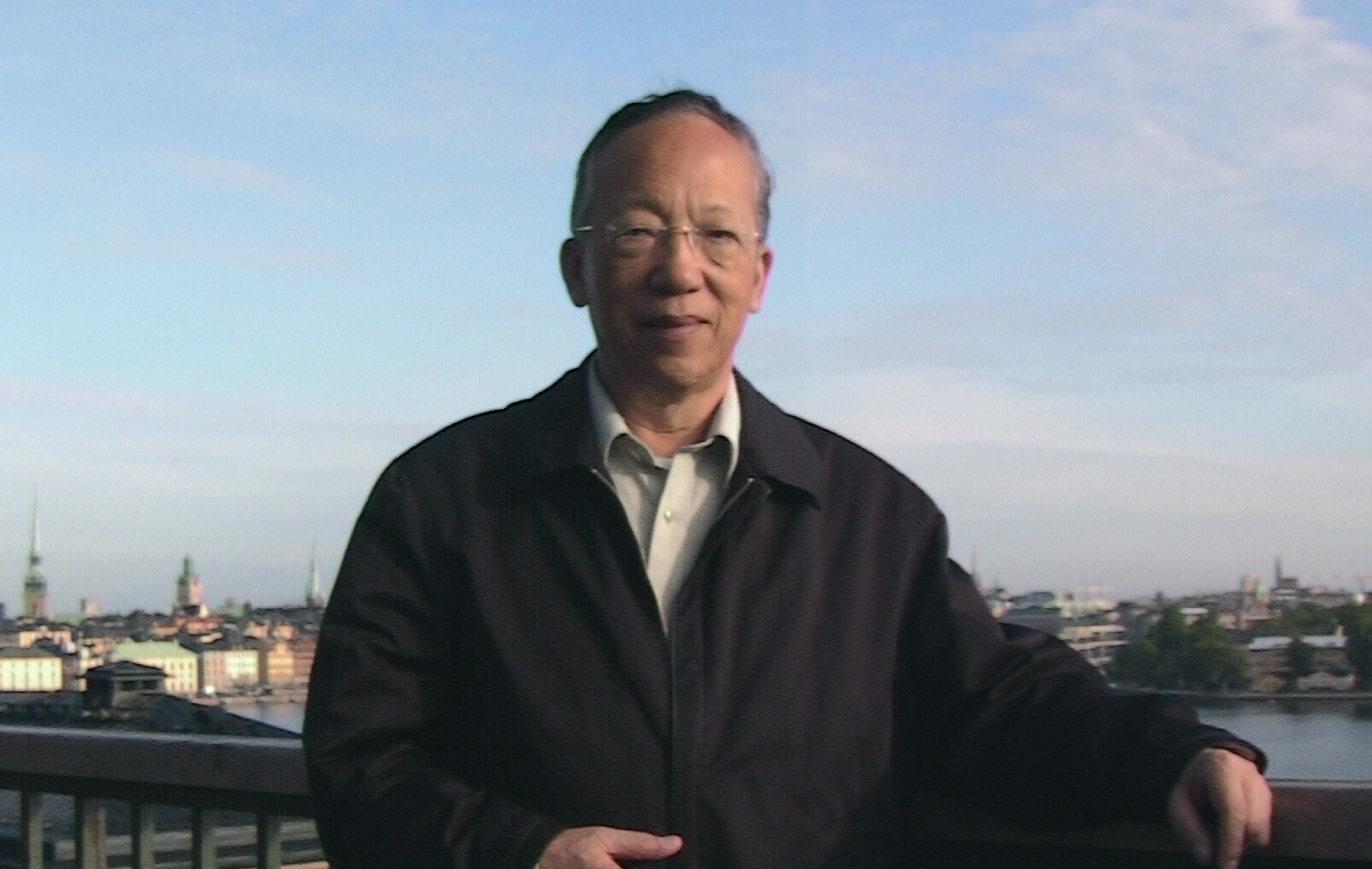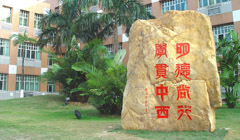Keynote speeches 大会主旨发言
1. Appliable Linguistics: the Potential of Registerial Cartography
Christian M.I.M. Matthiessen, the
Abstract:(forthcoming)
About the speaker:
Christian M.I.M. Matthiessen is Chair Professor of the Department of English, the Faculty of Humanities at the
Matthiessen has been involved in major text-based research projects informed by systemic functional linguistics since 1980, starting with the Penman project at USC/Information Sciences Institute, which produced a large-scale systemic functional grammar of English (the Nigel grammar). His research has covered a wide range of areas, including analysis of many kinds of discourse, corpus compilation and corpus-based studies, register analysis and context-based text typology, the development of Rhetorical Structure Theory (jointly with Bill Mann and Sandy Thompson), the description of English and other languages spoken around the world, language typology and comparison, translation studies, multisemiotic studies, institutional linguistics, computational linguistics, the evolution of language, and systemic functional theory.
Together with colleagues from UTS and Macquarie University in Sydney, he has been involved in a number of research projects, and has recently completed in large-scale project in healthcare, “Emergency Communication: Addressing the challenges in health care discourses and practices”. With other members of the PolySystemic Research Group in the Faculty of Humanities at PolyU, he is working on medical discourse/ health communication, language across the curriculum and other aspects of educational linguistics, multilingual studies (language comparison and typology, translation studies and second/foreign language education), language arts, and the language of space. Matthiessen has lectured and given courses around the world, including in
Matthiessen’s books include Systemic linguistics and text generation: experiences from Japanese and English (with John Bateman, 1991), Lexicogrammatical cartography: English systems (1995), Working with functional grammar (with J.R. Martin and Clare Painter, 1997), Construing experience: a language-based approach to cognition (with M.A.K. Halliday, 1999), Halliday’s Introduction to functional grammar (revised version of Halliday’s book, with M.A.K. Halliday, 2013), Functional typology (edited, with Alice Caffarel & J.R. Martin, 2004), Continuing discourse on language (edited, with Ruqaiya Hasan and Jonathan Webster, 2005 and 2007), Systemic functional grammar: a first step into the theory ([in English and Chinese] with M.A.K. Halliday, 2009, with an introduction by Huang Guowen), Key terms in systemic functional linguistics (with Kazuhiro Teruya and Marvin Lam, 2010), Deploying functional grammar (with J.R. Martin and Clare Painter, 2010), The texture of casual conversation (with Diana Slade, 2014). A book of his papers is being translated into Portuguese and prepared for publication in
Email:christian.matthiessen@polyu.edu.hk
Websites: PolyU home page:
http://www.engl.polyu.edu.hk/department/academicstaff/ChristianMIMMatthiessen.html
Wikipedia entry: http://en.wikipedia.org/wiki/C.M.I.M._Matthiessen
ResearchGate profile (under construction):
https://www.researchgate.net/profile/Christian_Matthiessen/?ev=hdr_xprf
2. Is the Idiom Principle Blocked in Bilingual L2 Production?
Istvan Kecskes, State
This presentation hypothesizes that the “idiom principle” (Sinclair 1991) that drives word selection in monolinguals may be blocked in the L2 of bilinguals and the “open choice principle” governs instead. In order to investigate the validity of this hypothesis a small corpus of non-native speaker – non-native speaker (lingua franca) communication is examined and compared to a similar study (Kecskes 2007) where the bilingual speakers used their L2 (English).
Based on the two studies it is concluded that the “idiom principle” is the most salient guiding mechanism in any language production. However, it results in less formulaic language use in L2 than in L1 of bilinguals. On the one hand this claim concurs with the findings of other studies (cf. Seidlhofer 2009; Warga 2008; Weinert 1995) concerning the limited use of formulaic language in L2. But on the other hand the presentation argues that this limited use is due not to the fact that the “open choice principle” prevails. Rather, the “idiom principle” remains the most salient guiding mechanism but generates less formulaic language because of social and individual reasons that will be discussed in the talk.
About the speaker:
Istvan Kecskes is Professor of Linguistics and Education at the State University of NewYork,
Some of his books and papers have been quite influential in the fields of pragmatics and bilingualism. ‘Foreign language and mother tongue” published by Erlbaum in 2000 was the first book that described the effect of the second language on the first language. His paper on dueling contexts published in the Journal of Pragmatics in 2008 is one of the most quoted papers according to the journal’s website. His latest books are “Intercultural Pragmatics” published by Oxford University Press in 2013, an edited volume titled “Research in Chinese as a Second Language” published by De Gruyter in 2013 and another volume edited with Jesus Romero-Trillo “Research Trends in Intercultural Pragmatics” published by De Gruyter also in 2013.
Dr. Kecskes is the founding editor of the linguistics journal Intercultural Pragmatics and the Mouton Series in Pragmatics published by Mouton de Gruyter: Berlin/New York, as well as the new bilingual (Chinese-English) journal CASLAR (Chinese as a Second Language Research) published by Mouton and the “Journal of Language Aggression and Conflict” published by John Benjamins: Amsterdam/Philadelphia (co-founder Pilar Garces Blitvich). He sits on the editorial board of the Journal of Pragmatics (Elsevier) Pragmatics & Society (Benjamins), International Journal of Multilingualism (Taylor & Francis), Lodz Papers in Pragmatics (De Gruyter), International Journal of Language and Culture (Benjamins) and the Journal of Foreign Languages (Waiguoyu) published in
Dr. Kecskes received a Senior Fellowship from the Rockefeller Foundation in the Rockefeller Research Center in Bellagio, Italy in 2004, a Senior Fellowship from the Mitteleuropa Foundation, Bolzano, Italy in 2005, a Honorary Professorship from Zhejiang University, Hangzhou in 2009, a Yunshan Chair Professorship at Guangdong University of Foreign Studies, Guangzhou, China in 2011, and a Distinguished Visiting Professorship at Monash University, Melbourne, Australia in 2013.
He is the recipient of the Chancellor’s Excellence in Research Award of State University of New York, the co-director of the Barcelona Summer School on Bi-and Multilingualism and chairman of CASLAR movement and also the director of the bi-annual conference on intercultural pragmatics.
Websites: http://www.albany.edu/faculty/ikecskes/
3.Critical Genre Analysis as Interdiscursive Performance in Professional and Public Space
Vijay K Bhatia, the City
Discourses in professional and public space share an important characteristic in that they interdiscursively appropriate rhetorical and other semiotic resources and conventions across genres, practices and cultures, displaying interesting patterns of interdiscursivity (Bhatia, 2010,
References:
Bhatia, Vijay K., (2004): Worlds of Written Discourse: A Genre-Based View,
Bhatia, Vijay K., (
Bhatia, Vijay K., (2008b): Towards Critical Genre Analysis, in Bhatia, Vijay K., John Flowerdew, Rodney Jones, (Edited) Advances in Discourse Studies, Routledge, (166-177).
Bhatia, Vijay K., (2010) ‘Interdiscursivity in Professional Communication’, Discourse and Communication, 21/1, (32-50)
Bhatia, Vijay K., (2012): Critical Reflections on Genre Analysis, in Iberica, Vol.24, (17-28).
About the speaker:
Vijay Bhatia retired as Professor of English from the City University of Hong Kong. He is the CEO and Director of ESP Communication Services and also the President of the Asia-Pacific Association of LSP and Professional Communication. Some of his recent research includes Analyzing Genre-bending in Corporate Disclosure Practices, and International Arbitration Practice: A Discourse Analytical Study, in which he led research teams from more than 20 countries. His research interests include, Genre Analysis of academic and professional discourses, including, legal, business, newspaper, and promotional genres; ESP and Professional Communication; simplification of legal and other public documents. He has to his credit more than 150 publications, which include individually authored monographs, edited books, book chapters and research articles in international journals. Two of his books, Analysing Genre: Language Use in Professional Settings and Worlds of Written Discourse: A Genre-based View, are widely used in genre theory and professional communication studies.
Website: www.vjkbhatia.com
E-mail: vjkbhatia1@gmail.com
4. Impoliteness in the Struggle for Power
Derek Bousfield,
The general view, and even some academic perceptions (see Leech 1983) hold that such types of linguistic or social behaviours of “impoliteness”, “rudeness” and “aggression” are somehow degraded forms of communication, typical of the uncultured and / or those incapable of other more effective forms of communication. However this paper argues that, far from representing an impoverished form of interaction, impoliteness, like politeness, can be used and communicated for the purposes of establishing, re-establishing, or challenging power.
Power, here, following Wartenberg’s (1990) and Watts’ (1991) definitions, is understood in its ‘dynamic’ and ‘supportive’, as well as ‘structuring’, ‘constraining’ and ‘ordering’ guises. That is power is seen, both, as a positive as well as a negative interactional phenomenon, being that power is the force that “… gets things done” (Moore and Hendry 1982: 127). Further, following, and extending the line of argument in Holmes and Stubbs (2003: 7), who say:
There are many […] responses to authority. […] people may challenge, contest, undermine or subvert power and authority. […] challenges to authority [can be] expressed not with direct and confrontational strategies, but rather in socially acceptable or ‘polite’ ways, such as through the use of humour, including irony and sarcasm.
(Holmes and Stubbs 2003: 7)
this paper argues that impoliteness has a role to play in the interactional attempts to challenge power, contest power, re-assert power, or undermine power and authority, too. The examples here are taken from British and American English settings such as Army Training, and Courtroom interactions where power is seen to be asymmetrical. As I will show, attempts to challenge interactional or other forms of power by impolite-using interactants does not guarantee success. In fact, in many cases, the attempt at impoliteness results in further and often explicit enforcement of power on the impolite using individual (though not always). The situational, interactional and societal norms of the event have a prevailing impact on the interaction and its outcome.
Bibliography
Holmes, Janet & Maria Stubbs, (2003) Power and politeness in the work place.
Leech, Geoffrey (1983) Principles of Pragmatics.
Moore, S. and B. Hendry (1982) Sociology. Hodder and
Watts, Richard J. (1991) Power in family discourse.
Wartenberg, Thomas E. (1990) The Forms of Power. From Domination to Transformation.
About the speaker:
Derek Bousfield is Head of The Department of Languages, Information and Communications, and Associate Dean for Quality Assurance, Teaching and Learning, of the Faculty of Humanities, Languages and Social Science at
Professor Dániel Z. Kádár, the University of Huddersfield, UK
In the present lecture I examine the relationship between morality and linguistic (impoliteness) by looking into the realm of metapragmatics (i.e. the way in which people talk about/reflect on politeness and morality).
Since Eelen’s (2001) seminal study there is a general agreement in linguistic politeness research (and broader interpersonal pragmatics) that phenomena like politeness and impoliteness come into existence in interaction through evaluation. The recent model of Kadar and Haugh (2013) further elaborates the importance of evaluation, by showing the complex relationship between evaluation and different perceptions and understandings of (im)politeness. Whilst evaluation has thus been thoroughly studied in pragmatics, the moral aspect of the evaluative process has been relatively left behind, and the present study fills this knowledge gap. Interactional evaluation is not an ‘objective’ process, and along with a number of other factors personal and social moral norms influence the ways in which the appropriateness of an interpersonal pragmatic action is perceived and understood. Furthermore, the moral value of an interactional act is subject to negotiations in public metadiscourse(s); that is, what is perceived as appropriate or inapporptiate in the immediate here-and-now might be re-evaluated later as members of the public negotiate its relationship with underlying moral norms.
Importantly, this study draws attention on metapragmatics, by exploring the relationship between (im)politeness and participants’ perceptions of moral values as evidenced by their metacommunicative voicing. In so doing, I address a key knowledge gap in the field: that of the interface between metapragmatics (Lucy 2004), (im)politeness and moral values that are subject to cross-cultural variation (see Samovar et al. 2011). I illustrate the relationship between morality, (im)politeness and metapragmatics by looking at an American reality show, and also by drawing on moral metaconcepts from Chinese and Anglo-American cultures.
References
Eelen, Gino 2001. A Critique of Politeness Theories.
Kadar, Daniel Z. and Michael Haugh 2013. Understanding Politeness.
Lucy, John A. 2004. Reflexive Language: Reported Speech and Metapragmatics.
Samovar, Larry, Richard Porter, and Edwin McDaniel 2011. Intercultural Communication: A Reader.
About the speaker:
Dániel Z. Kádár is Professor of English Language and Linguistics and Director of Centre for Intercultural Politeness Research at the University of Huddersfield, UK. He is also Visiting Professor at the Nanjing University of Science and
Prof. Kadar is author/editor of 19 volumes with leading publishing houses such as Cambridge University Press and Palgrave Macmillan. He has also published a large number of articles in high-impact journals such as Journal of Pragmatics, Pragmatics, and Journal of Politeness Research. His areas of research include socio-pragmatics, intercultural communication and historical pragmatics. Having studied Chinese for two decades, Daniel has special interest in Chinese pragmatics and Sino-English intercultural pragmatic issues. His most recent books include Understanding Politeness (Cambridge University Press, with Michael Haugh) and Relational Rituals and Communication (Palgrave Macmillan).
Prof. Kadar is Editor of East Asian Pragmatics (Equinox), a cutting-edge peer-reviewed journal that forms a bridge between pragmaticians from East Asian and Western countries. He acts as Editor (with Jonathan Culpeper and Michael Haugh) for the Palgrave Handbook of Linguistic Politeness, the largest publication project that is so far dedicated to linguistic politeness. He also edits the book series Pragmatics Interfaces (Equinox), and he is on the editorial board of 7 other journal and book series. Along with his editorial role, he is in the management of various academic organisations, such as the Linguistic Politeness Research Group and the European Association of Chinese Linguistics.
6. 什么山上唱什么歌- 社会及公共话语语用研究
何自然,广东外语外贸大学外国语言学及应用语言学研究中心
摘要:社会及公共话语的话题覆盖很广,本文讨论的只是涉及日常交际中人们常常采用的对话原则:什么山上唱什么歌。就是说,人们在日常的社会交际中往往会根据话题和话语内容改变自已谈话的身份或角色,以不同的语用方式来维护自身的利益,促进相互理解,达到相互沟通。为此,人们的话语往往是看人说话,看事说话,看环境说话。在交谈过程中不断改变着角色、身份和话语内容,做到所谓“什么山上唱什么歌”,从而达到交际的目的。本文除了讨论如何按该原则调控话题之外,还特意就有关语用身份错位导致的受骗,以及有关与讲话人身份不相称的公共话语进行评论,同时评论语码混用的现象对社会及公共话语的影响。
关键词:社会及公共话语,身份, 角色,身份错位,语码混用
Where and What to Say?
– A Pragmatic Study of Social and Public Discourse
Ziran He
Center for Linguistics & Applied Linguistics
The topics on social and public discourse are covered broadly. What this paper discusses has to do with the principle that people should observe in daily social communication. “Where and what to say” means that in daily communication people would change the identity or roles they play in the talk. According to the topics and contents of the discourse they keep their own interests, promote mutual understanding, and achieve mutual communication. For all these, while entering with each other into the discourse, they would pay attention to whom to talk with, what to explain and where to discuss. They would frequently change their identity or roles they play in the talk, trying to follow the principle of “where and what to say”. This paper, on top of discussing how to manipulate and control topics by means of the above mentioned principle, makes comments, in particular, on misplaced identity in discourse, which leads to being deceived and to an identity mismatch of the speakers. Finally, the paper also makes comments on the present influence of code-mixing in social and public discourse..
Key words: social and public discourse; identity; role; misplaced identity; code-mixing.
何自然(1937-),广东外语外贸大学教授,中国语用学研究会会长, 暨南大学出版社《语用学学人文库》主编。何自然教授曾任国务院学位委员会第4届学科评议组成员、广东省高等学校教师高级职务评审委员会英语学科评议组组长;广东省翻译人员高级职务资格评审委员会副主任委员;《现代外语》编委副主任;国际学术期刊《加拿大研究》、《语用学学刊》、《跨文化语用学》、《语用学》等刊物编委。何自然教授自1959年大学毕业后一直在高等学校从事外语教学,1989年获高校优秀教学成果国家级优秀奖及广东省优秀教学成果一等奖;1991年起,先后被国内的十多所高校(清华大学、浙江大学、南京师范大学等)聘为客座或兼职教授;1992年起享受国家政府特殊津贴。
何自然1983年留学加拿大,1994及1998年先后在英国及香港从事认知语用学及社会语用学的研究。他在国内开设英语、英语语法、语言学、翻译、语言与文化、英语写作及语言哲学、认知语用学等本科及研究生课程,指导硕士、博士研究生及博士后研究人员从事语用学、模因论方面的研究。2012年组建广东高校校际语言模因论研究小组,带领小组成员发表、出版了一系列专题成果。
何自然教授30多年来在国内外发表论文近二百篇,出版了国内第一部《语用学概论》及其他语用学、语用语法等专著和译著10多部。据中文社会科学引文索引(CSSCI)统计,
HE Ziran studied and worked as lecturer of Russian and English at the Xi’an Institute of Foreign Languages from 1955 to 1973. Then he was transferred to work in the Guangzhou Institute of Foreign Languages (now the Guangdong University of Foreign Studies). In 1983-1984 he studied linguistics at
Professor HE has published over 200 academic papers and articles in learned journals and collections inside and outside of
|










